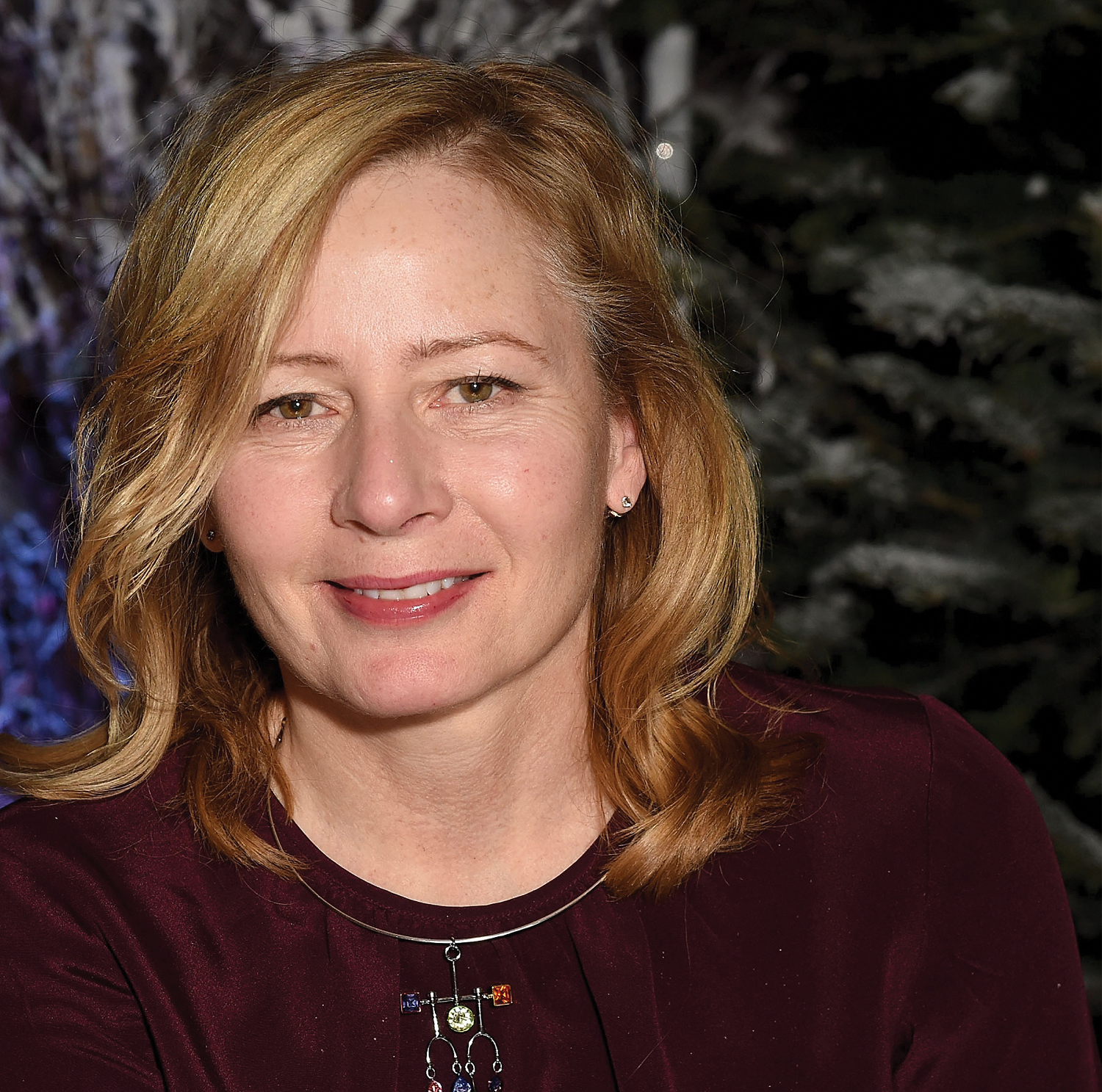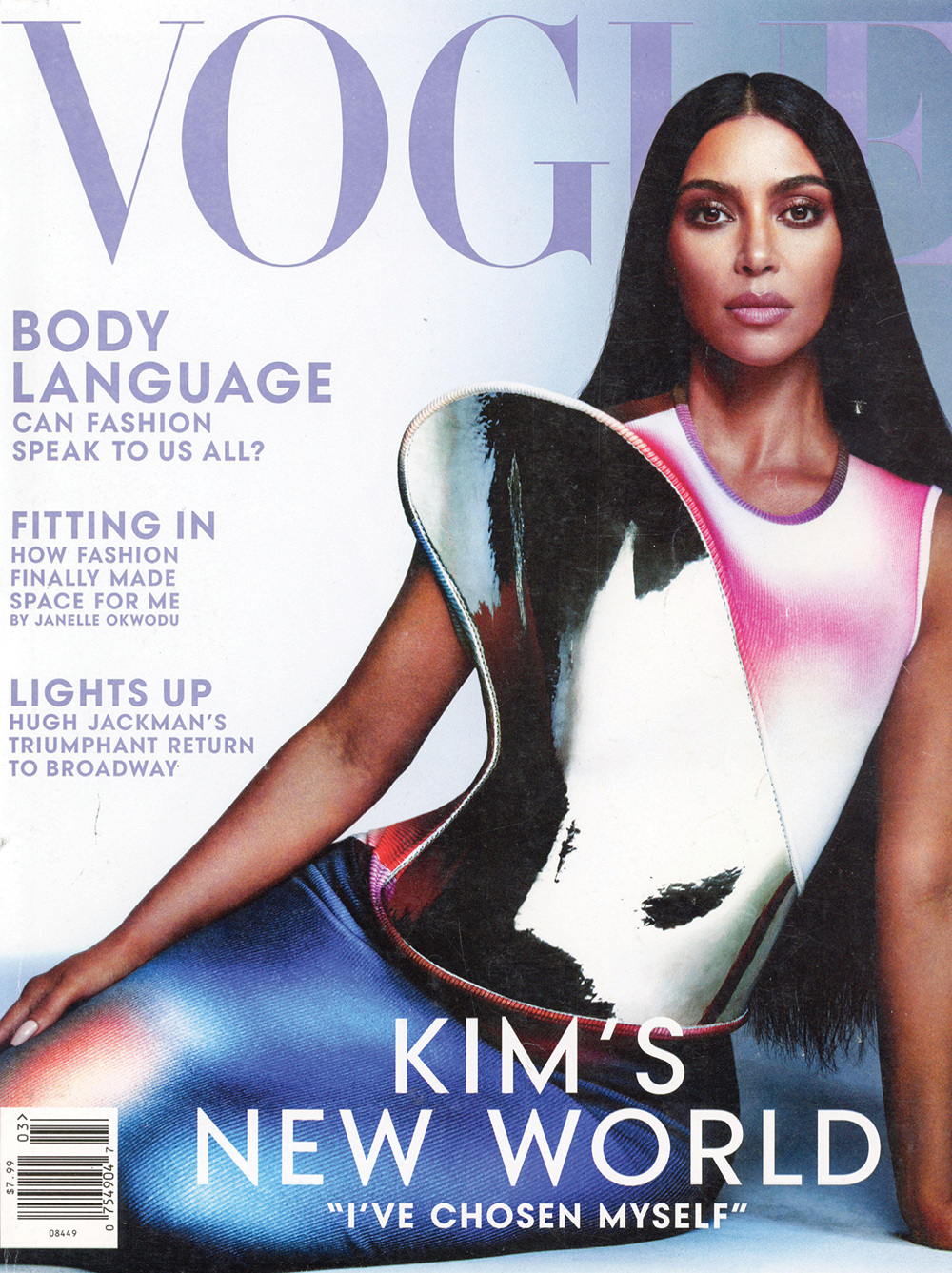SHARING A PASSION FOR FASHION

I’ve always believed in giving a chance to people who have no connections in the fashion industry. When I started out I knew absolutely no-one.
“It was absolutely life affirming,” says Sarah Mower (English and History of Art 1979), on her recent experience taking a group of Leeds students to London Fashion Week. It’s her latest step in re-connecting with the University which helped her make her first connections in the industry which has become her life.
As Vogue’s chief critic, Sarah reviews shows by internationally-famous designers all over the world, sharing her life-long love of fashion. Yet she remains a passionate advocate of young people and emerging talent, and looks back with fondness on her own three years in Yorkshire.
“Leeds was an obvious choice, partly because there were few others offering the same combination of subjects I wanted to study. But I’d never been anywhere up north before.”
Sarah’s introduction to Leeds was a chastening one. “In my first year, they put me in a flat in Hunslet Grange, quite a long way from the University.” Less than a decade after it had been completed, the ambitious ‘streets in the sky’ development was already facing severe issues with its heating and waste disposal systems. “I just remember being freezing cold on the bus, travelling to campus.”
Sarah soon moved to student central: “My boyfriend and I found a flat beside the cricket ground in Headingley. From the bedroom window we could watch Geoffrey Boycott batting.”
It was a time of seismic social change. “The National Front was very active and I got involved with Anti-Fascist protests. All my friends were in bands, punk was just starting, and all the big names played in Leeds.”
It was also a city living in the shadow of the Yorkshire Ripper, and Sarah joined women’s rights marches in Chapeltown – the start of the ‘Reclaim the Night’ movement.
“The Art History department was a hotbed of Marxist theory,” she says. “Griselda Pollock was a leading firebrand rewriting the history of art with women in it – groundbreaking critical thinking which has informed my ability to question and critique fashion as a writer ever since.
“They were extraordinary times – and I made friends for life.”
What some of these friends never guessed was Sarah’s growing interest in fashion. “The news stand in the student union used to have copies of Vogue, but I had to buy it when no-one could see. It was a form of escapism for me.”
Sarah is Vogue’s chief critic, reviewing shows by internationally-famous designers all over the world
Sarah is Vogue’s chief critic, reviewing shows by internationally-famous designers all over the world
This secret pleasure kick-started her career. “In one issue they advertised a talent competition where you had to write four essays. I sent in my entry and shortly afterwards received a letter inviting me to the winners’ lunch at Vogue House in Hanover Square.”
Sarah soon realised that the lunch date clashed with her final Fine Art exam, but the faculty arranged quarantine conditions to allow her to do both.
“Someone accompanied me to London and I stayed with them overnight so they could be sure I couldn’t contact anyone who had already sat the paper. I did the exam the next day. The University went above and beyond to ensure I got this opportunity and I’m eternally grateful to them for that.”
Even so, Sarah’s route to her career at Vogue was a little more complex: “The journalism contest didn’t lead directly to a job, but it was something I could put on my CV when I graduated, and I soon got my first graduate job at Miss London magazine.”
Sarah has since written for the Guardian, Times, Conde Nast and others, and was awarded the MBE in 2011 for services to the fashion industry. She has also long been a champion of new and innovative designers and is the British Fashion Council ambassador for emerging talent. “I’ve always believed in giving a chance to people who have no connections in the fashion industry,” she says. “When I started out I knew absolutely no-one.”
Among the talents she has nurtured is renowned fashion designer Richard Quinn, who Sarah ‘discovered’ while he was a student in London. And in 2018 she was behind the Queen’s first ever visit to a London fashion show, when Quinn received the inaugural Queen Elizabeth II Award for British Design.
An invitation to give a talk at her old University enabled Sarah to connect with the Leeds students of today: “It was packed and lots of them stayed behind to ask questions.”
And in February, she hosted three students at London Fashion Week: “I took them around the show, they talked to people and introduced themselves. One of them was writing reviews every day. It was brilliant to be with them, and I’m planning to take three more students to the next fashion week in September.
“It’s also been incredibly eye-opening to see what the textiles department is doing at Leeds,” she says. “The industry really needs that innovation and sustainability – not least to provide solutions to some of the environmental devastation it has wreaked upon the world.”
Sarah acknowledges her good fortune at being a student in the 1970s. “We were blessed to be part of a generation who were paid to go to university. The grant system guaranteed that there was a real social mix – people of very different backgrounds from right across the UK, and that was an education in itself.
“I've been fortunate, so hopefully, I can pay some of that forwards. And besides, it’s not simply about what I can teach students; it’s also about what they can teach me. I’m learning all the time.”
Get involved
Whether sharing your expertise with our students or talking to prospective applicants at recruitment events, your support for the University can be invaluable.
If you’d like to find out more about how you can get involved with opportunities like these, visit leeds.ac.uk/alumni-volunteering or email us at alumnivolunteers@leeds.ac.uk.
